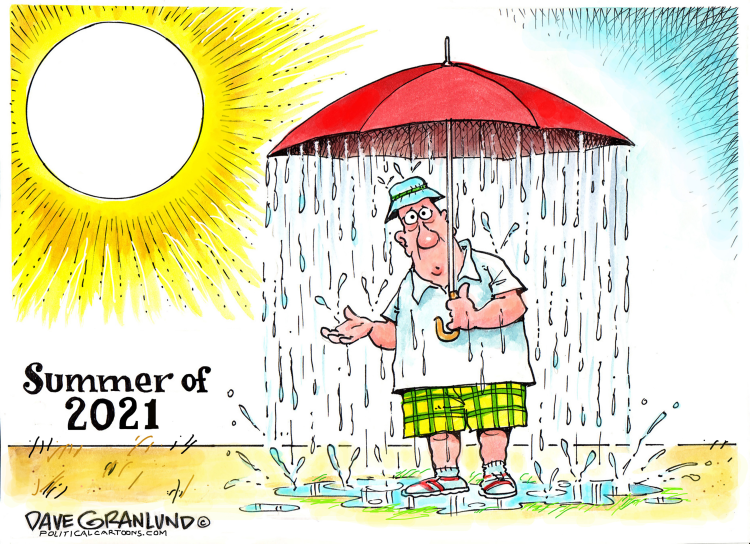Friday Open Thread ~ "Rain Songs" edition
Submitted by phillybluesfan on Fri, 07/23/2021 - 5:00am
It's raining, it's pouring, the old man is snoring
Bumped his head and he went to bed
and he couldn't get up in the mornin'
Rain rain, go away, come again some other day.
Bumped his head and he went to bed
and he couldn't get up in the mornin'
Rain rain, go away, come again some other day.
















